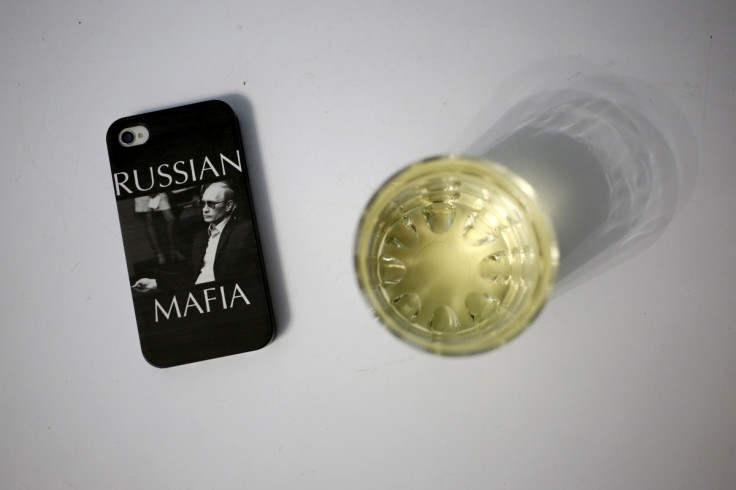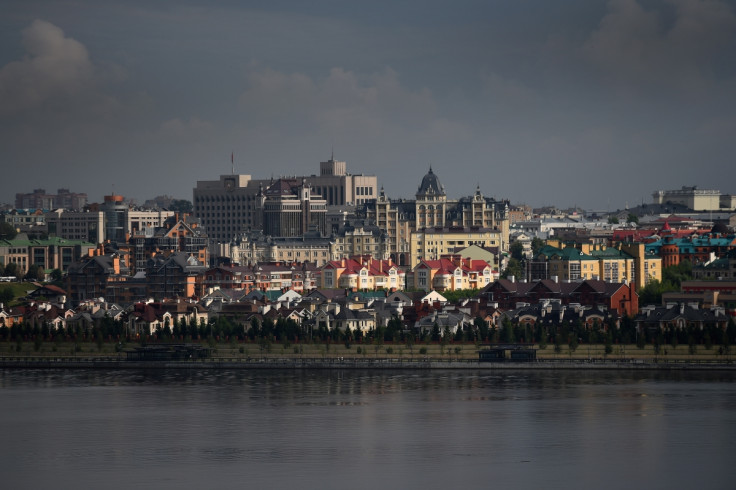Inside Russia's street gangs: Author gains unprecedented access to mafia networks

Amid blanket state propaganda and tightening restrictions on independent media, the networks of corruption linking government officials, organised crime gangs and business is a subject strictly off-limits in Russia.
However, in recent weeks a series of events have forced the Kremlin to address the subject publicly, with Russian President Vladmir Putin claiming that 11,000 officials were punished for corruption in the first six months of 2015.
A film by anti-corruption activist Alexander Navalny has gained more than four million views since being posted online late last year. In a series of explosive claims it alleges connections between the family of Russia's chief prosecutor, Yuri Chaika, and organised crime gangs.
Last week a judge in London ruled that Russian President Vladimir Putin was "probably" involved in the murder of Alexander Litvinenko, with the KGB defector's threats to expose Putin's links to mafia networks listed as possible motives.
Little is understood though about about how the gangs operate and extend their influence.
One academic has penetrated the wall of silence surrounding Russia's gang culture, gaining interviews with more than 30 members of a street gang in Kazan, Tatarstan, for a landmark study on the past, present, and future of the Russian mafia.

Svetlana Stephenson, a reader in Sociology at London Metropolitan University, undertook the study with the help of academics from Kazan University, and said tracking down gang members proved surprisingly easy.
"One of the members of our team was a young sociologist who lived in an area with an endemic gang presence," she explains, while one lecturer was shocked to discover that students in his own class belonged to criminal gangs.
"It's like an ordinary career," Stephenson explained.
"Some members were typical delinquents who did not have education and had been involved in street crime and rackets like illegal parking lots and mobile phone resales, but there were many people who had higher education, who had proper jobs, who aspired to become members of political parties like [Russian President Vladimir Putin's] United Russia."
In the 1990s, after the collapse of the Soviet Union and the emergence of entrepreneurial gangster capitalism, many young men "either joined the gangs because they wanted to be safe or because it was the only place where they could make any money," Stephenson said.
The Russian mafia became infamous, running illegal rackets including drug dealing, prostitution, weapons trafficking and assassinations. Gangsters fighting brutal turf wars engaged in gun battles on the streets of Moscow, and the country descended into increased lawlessness.
With Putin's accession to power, the state clamped down on gangs, imprisoning a number of mafia bosses and reasserting its monopoly on violence.
For Stephenson though, this masked increasing collusion between crime gangs and security services, with Russia evolving into what one Spanish judge quoted in the WikiLeaks cables dubbed a 'mafia state'.
"What has changed since the 1990s is the state is the main racketeer – like the FSB and the police but mainly the FSB," she explains. "They are collecting the money from protection. They often operate together with the local criminal gangs."
In Putin's Russia the decision to join gangs "was not so much [made] under pressure but it was a rational choice," said Stephenson. "This is because the gangs were seen as giving people good connections in the area, and giving access to criminal opportunities."
However it was not just involvement in criminal rackets members aspired to. "Some of them wanted to become businessmen and the gang could help facilitate it through contacts in the police and with the tax authorities and local authorities so it was seen as a kind of club that could be useful to promote both criminal, but also legal, careers."
Gang members told Stephenson that after pledging allegiance they had relative freedom, setting up and running criminal rackets as part of small groups. These may involve extortion, operating illegal internet cafes or car parks and, increasingly, drug dealing. The members are united by a fierce bond of loyalty to the gang, and every week meet and pay a portion of their earnings into a common fund, which they can subsequently withdraw loans from to set up legitimate businesses or to train for careers including the police. These members are "very useful", explains Stephenson.
Gone is the rampant violence of the 1990s: "There is not a lot of violence on the day-to-day level any more unlike in the 1990s, because these gangs are established now so they have a reputation", said Stephenson.
Apart from the occasional turf dispute or violent intimidation to secure extortion payment "the current gangs believe it is better to avoid violence as they don't want to attract attention to themselves. They actually want to have good relationships with the police and with security services, who are also involved in the operation, so nobody wants trouble."
Members who joined the gangs in the 1990s have now graduated to become mafia bosses, responsible for lucrative drugs and weapons trafficking networks. Others now hold key positions in the business world. security services or in central or regional government.
"Those leaders who would integrate into the state became members of the state Duma, or legitimate businessmen. They have become members of the Russian elite. There are all sorts of ways they are not just economically but also personally integrated into the family [of top officials] through marriage, for example," said Stephenson.
One the key differences between Russia's new entrepreneurial gangsters and the infamous tattooed Vory v Zakone [Thieves in Law] gangsters of the past is flexibility, with the Thieves in Law banned from involvement in the legitimate economy under their elaborate codes of honour, and barred from leaving under pain of death.
To leave is not easy, but possible, explains Stephenson, "because the gang tries to prevent this and if you want to do this you are subjected to severe physical beating, a person could die, and a fine. You have to give all the money back if you borrowed anything from the fund.
"But it is possible not to leave the gang officially but to stay a gang member, meet your mates periodically, and give some money to the fund and develop whatever career you like".
With Russia's economy hit hard by record low oil prices and western sanctions imposed in the wake of the conflict in east Ukraine, young men throughout Russia will find themselves jobless and increasingly desperate, circumstances propitious for the growth of Russia's criminal networks, explains Stephenson.
"Throughout the 2000s there was this process where the gangs seemed to retreat more and more in to the shadows of society, and the state seemed to prevail, not in terms of enforcing law and order but as a violent operator itself," said Stephenson.
"But recently with an economic crisis I think that we may well see again the process repeating itself like it was in the '90s, when young people who have no prospects may start again to join the criminal networks in an effort to find subsistence."
© Copyright IBTimes 2025. All rights reserved.




















